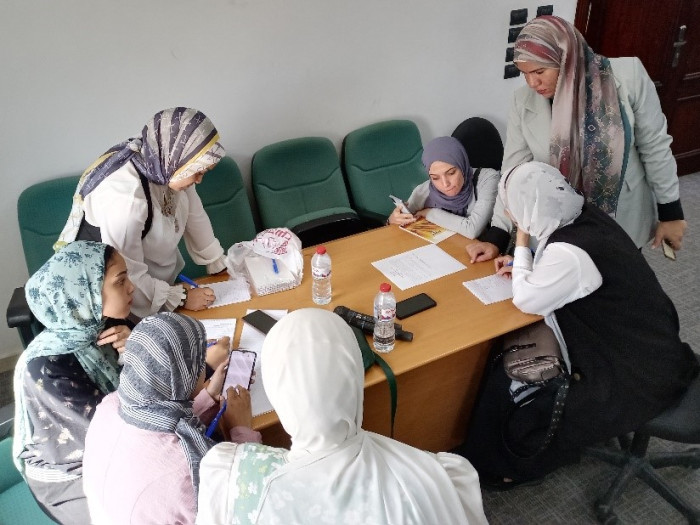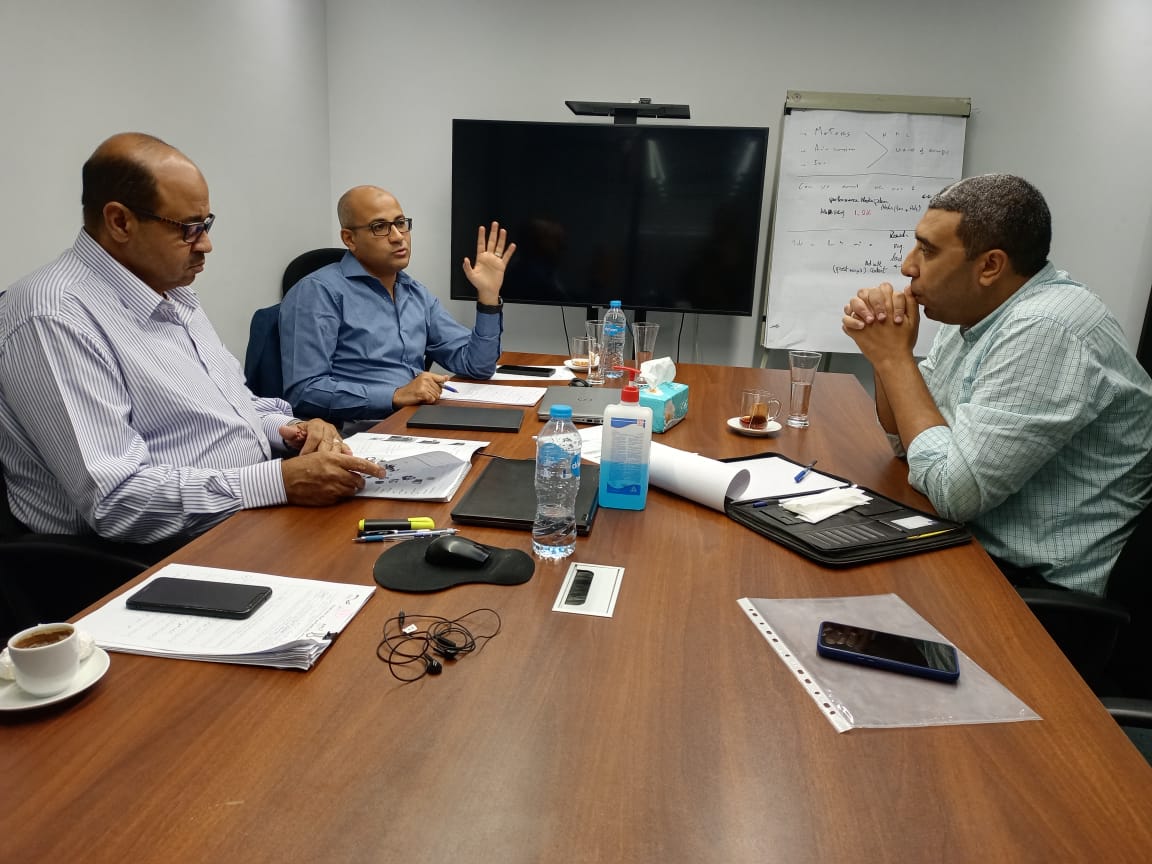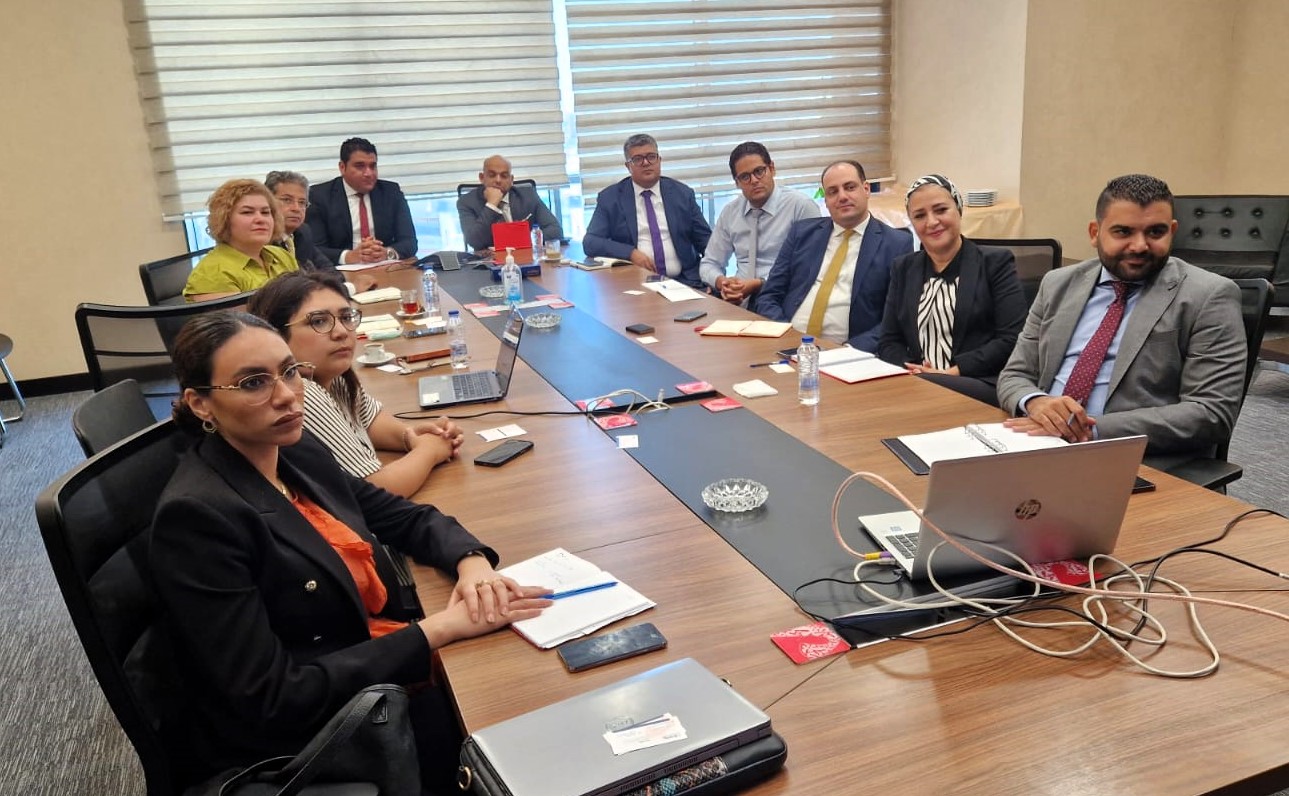
In Egypt, SMEs often suffer from lack of funds, not only to finance their machines and equipment but also their working capital. Especially the latter is necessary to pay the companies’ employees as well as material for production and stock on time. Egyptian banks are usually reluctant to finance such working capital needs of companies, particularly if they cannot provide sufficient collaterals. “In Egypt, especially the smaller businesses need to wait long time for payment when they deliver their goods to the big companies”, says Mohamed Said, GOPA AFC’s SME expert from Egypt.
GOPA AFC’s consultants mandated by GIZ have recently introduced an innovative approach to Egyptian banks and SMEs that is called value or supply chain finance. The reason for this was that both SMEs and banks can benefit greatly from a supply chain. This chain refers to the entire process of making and selling commercial goods in which usually many companies, bigger and smaller ones, are involved. Our consultants’ focus was on the SMEs in these supply chains, specifically those towards the lower end. We aimed to address how to expedite payments to companies and how to equip the banks with best-practice instruments and approaches to integrate even the small companies into their credit and transaction mechanisms.

In the picture: Coaching of an entrepreneur in November 2023.
Therefore, about 170 Egyptian bank managers joined GOPA AFC’s series of 10 webinars on value chain finance. Our experienced experts such as Federico Bilder and Nvard Gharakhanyan acquainted the participants with the essential elements and trends in supply chains, innovations in supply chain finance and digital financial services. The webinars were followed by tailor-made technical assistance packages for topics such as product development or strategic digital and non-digital consultancy.
“The value for the banks was not only to receive consultancy on specific value chain finance products and topics but also on how to place them under one program which the banks are currently about to actively offer in the market”, says Frank Mueller, leader of our project team comprising seven international and national consultants.
Our consultants developed and adapted supply chain finance products for five Egyptian financial institutions. Among the institutions was Aman Holding, which now positions itself as an intermediate player between big suppliers or distributors and small retailers, aiming to bridge this market gap. As objective Ahmed Kuraiem, Head of SME lending at Aman Holding, explained: “Aman seeks to empower SMEs by providing them with essential funds to boost their sales”.
Moreover, 43 Egyptian SME were intensely trained in supply chain finance. Topics included: how to work with different financial products, financial and cash-flow management of SMEs and pitching what is commonly understood as a short and focused presentation to financial institutions in order to convince them of their concept. Afterwards, the companies confirmed to us that they are now in the position to either receive fresh money from the banks to finance their production or to improve their financial and cash flow management– despite the difficult economic conditions in the country.

In the picture: Workshop with the management of Export Development Bank (EBank) on 11 October 2023.
After one year of intense work and trainings with the companies and financial institutions, we can affirm that our developments and trainings in supply chain finance have been pertinent for the small businesses, which are often still excluded from banking operations. Hence, our efforts are quite significant in advancing financial inclusion.
This recognised approach has demonstrated the potential to ease the financing barriers faced by small businesses deeper in the supply chain, providing them with the necessary working capital to build and grow their businesses. Hopefully, this could serve as a positive indicator amidst the currently challenging economic climate in Egypt.
We implemented the GIZ project “Private Sector Development and Innovation (PSI): Value Chain Financing in Egypt”, funded by the BMZ, from October 2022 to March 2024.
For questions, please contact Mareike.Decker [at] gopa-afc.de.
